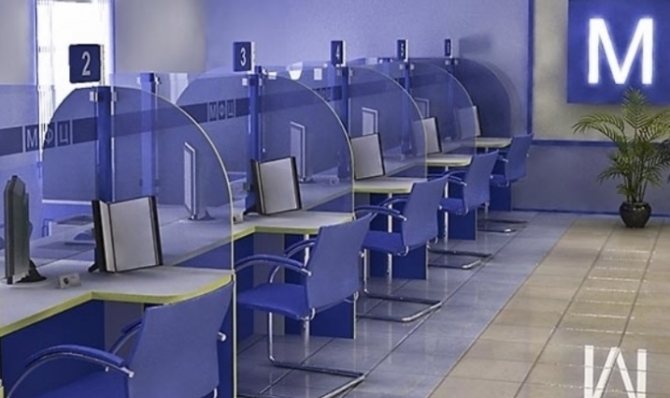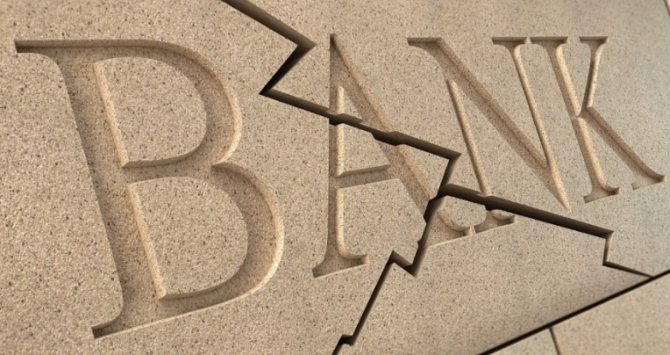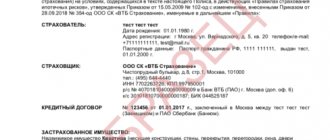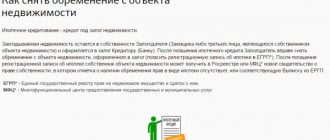The procedure for registering ownership of real estate during mortgage lending
In order to legally confirm the right of the new owner to the purchased property, you should contact the state registration authorities. In the Russian Federation, a special state body, Rosreestr, is responsible for entering data on changes in the owner of residential real estate.
The procedure for this legislative act is strictly regulated and divided into the following stages:
- Submission of a package of documentation by the new owner to the state registrar;
- Checking the availability of all necessary copies of documents by the employee;
- Conducting a legal examination of the transaction and all other circumstances provided;
- Indication of identified deficiencies (if any);
- Making a decision to satisfy the requested action;
- Entering relevant information into the Electronic Register of Real Estate Owners;
- Drawing up an extract from the Unified State Register of Real Estate, which is the title document of the new owner of the square meters.
Measures to change the record of the new owner are carried out within the period established by the procedure - 5-10 working days. Sometimes in large populated cities this period may increase due to the high workload of the company’s employees. An obstacle to compliance with the minimum deadline may be the identification of improper execution of the submitted documents.
A package of documents for registering ownership of an object purchased with a mortgage
Each legislative procedure involves the formation of a specific package of documentation. This need is due to compliance with all letters of the Law, in accordance with a specific procedure. Registration of ownership of an apartment is no exception and requires the submission of certain documents.
Each individual case has its own list, but the main ones do not change:
- Documents identifying the identity of each participant in the transaction;
- Application for state registration of changes in Rosreestr;
- Payment order from a banking institution regarding payment of fees for registration activities;
- contract of sale;
- Certificate of title of the previous owner;
- A mortgage agreement and a mortgage note, which stipulates the conditions for the return of funds and the conditions for the borrower to take full ownership of the property;
- Technical passport for the apartment;
- Certificate from their Housing Office about registered persons in the apartment;
- Documentary confirmation of the absence of debts on utility bills;
- If the apartment is jointly owned, then notarized consent of the other half or shared owners;
- Special guardianship permission in cases where there is a minor child among the sellers.
In each specific case of a transaction for the sale of real estate, the list of documents may change, depending on the circumstances of the case.
How to register ownership of an apartment with a mortgage (secondary real estate market)

When purchasing an apartment with a mortgage on the secondary housing market, it is important to clarify all the important points in the documents before conducting a transaction to re-register property rights. The main points that are important for the buyer are the absence of debt on utility bills, legal redevelopment, if any, and the availability of all supporting documents.
It is necessary to find out the number of sellers, their consent to sell the apartment, as well as the presence of registered minor children.
An apartment purchased with a mortgage is registered with Rosreesr using a standard package of documents. After checking the provided documents and making the necessary entries in the main register, the official is obliged to provide the new owner of the apartment with an extract from the Unified State Register on the specified date. The date of issue of documents is indicated in the receipt for receipt of the documentation package.
When an apartment becomes a property with a mortgage
According to the law, real estate can be registered as shared ownership with the definition of shares between the parties, regardless of whether it will be purchased for cash or with a mortgage, or whether the parties are in an official or civil marriage. In the loan agreement, the parties will have the status of co-borrowers, obligated to share mortgage payments.
Obstacles can only arise from banks that do not want to take on risks in the event of a breakup of a couple that has not officially legalized their relationship, where one of the parties is insolvent and unemployed. It is not recommended to register property and a mortgage loan only in the name of an unofficial spouse. Since in the future he may challenge the rights of the second spouse, who does not officially make contributions to repay the mortgage loan and does not have a common budget with him.
At the moment, the issue of equalizing the rights and obligations of spouses in a civil marriage with officially registered ones is being resolved at the legislative level, but this issue has not yet been fully resolved.
In such relationships, there are no rights and obligations of the spouses, and there is no regime for joint property of the spouses. Banks do consider the income of borrowers and their spouses, but it is worth considering that an apartment purchased during an official marriage will a priori be considered joint property. It is worth noting that many banks ask to remove insolvent spouses from the list of legal holders through a prenuptial agreement.
Shared ownership in your case is possible only by signing an agreement on the division of property or another way of determining shares. The purchased apartment will be pledged to the bank, therefore various types of actions related to the property require obtaining consent from the mortgage institution. In essence, the solution to the issue goes into the framework of a trust relationship - the common-law husband can be given shares in the apartment after the mortgage is repaid.
Personally, in my experience, the first option is better: you buy an apartment in common joint ownership, and in case of unpleasant circumstances, half is definitely yours.
Everything is more transparent here: we took out a mortgage together, became owners together, and pay it off together. There is also a backup option - take one of your parents’ relatives as a co-borrower, for example, and register some part of the apartment in his name. As a rule, when purchasing an apartment with a mortgage, the property is registered as the property of the person who is the borrower of the funds.
To register an apartment as the property of several persons, it is necessary that all these persons be co-borrowers. The possibility of including you as a co-borrower must be discussed with the bank where you plan to take out a loan.
When registering an apartment only in the name of your common-law husband, the apartment will become his personal property, and if the relationship between you ends, the possibility of allocating you a share of the apartment will depend only on his desire. Provided that the second spouse acts as a co-borrower or guarantor for the loan, it is possible to register it as joint ownership without defining the shares or as shared ownership with the shares defined.
It is also possible to register the borrower as the sole owner; the title owner will be one spouse. In a situation where the title owner is one of the spouses, the apartment will be jointly owned by force of law. To understand which registration option is possible, you need to familiarize yourself with the bank’s position, since each bank has its own requirements for real estate registration and borrowers.
If it is necessary to take into account the contribution of the personal funds of one of the spouses to the purchased apartment, you can use the option of concluding a marriage contract, which is subject to mandatory notarization.
Accordingly, the parties can foresee the legal consequences of a particular transaction in advance, before acquiring property. If you and your husband are married, then regardless of who the apartment is registered to, it is your joint property.
Since usually the title borrower of the person in whose name the apartment is registered is the spouse who officially works. I would also like to note that if the amount of the down payment is your personal, then in case of divorce it is worth insuring yourself and drawing up a donation agreement for this money specifically for you, for example, from your parents.
Then, in the event of a divorce, you will have proof that a third of the apartment was purchased with your personal savings, which means that only the remaining part will be divided in half. When a borrower buys an apartment using a classic mortgage scheme, it immediately becomes his property, remaining pledged to the bank.
Accordingly, the apartment owner acquires three rights: use, ownership and disposal of his property. Registration and moving in of third parties As for the right of use, the borrower can freely live in the apartment and move in third parties into it, however, notifying the bank of all persons whom he wants to move into the apartment.
Because both the borrower and all the persons moving in with him will be responsible to the bank for the safety of the apartment, which means the bank should know about everyone living in it. This procedure is purely for information purposes; the bank will not check the moral character or law-abiding behavior of your residents.
A number of banks, in order to once again remind borrowers of this obligation, offer the borrower to sign a separate agreement when concluding a mortgage transaction, in which the borrower undertakes to agree with the bank on the circle of people whom he intends to accommodate in the apartment. Occasionally, banks impose restrictions on borrowers, allowing, for example, only family members to move into an apartment purchased with a mortgage.
By the way, if among the bank’s conditions there is a ban on people who are not your relatives moving into the apartment, this does not mean a simultaneous ban on registering third parties in it. According to the new housing legislation, registration in an apartment, temporary or permanent, does not give rise to the right to use it.
But you will also have to notify the bank that you are going to register someone in your living space. Sale, will and donation But the right to dispose of the apartment of the borrower who has taken out a mortgage loan is limited due to the fact that the apartment is pledged to the bank until the loan is fully repaid.
This is important to know: Is it possible to be registered in two apartments?
More precisely, there are no legislative restrictions for this, but until a procedure for selling apartments purchased with a mortgage has been developed, banks usually do not agree to this. This will be a secondary pledge, since the apartment is already pledged to the bank that issued the mortgage loan. But, firstly, the consent of the creditor bank that issued the mortgage loan will be required, and secondly, the big question is whether another bank or other institution will agree to become the second lender in line if the borrower is unable to pay off its obligations.
You need to register ownership of a mortgaged home in the same way as in relation to other purchased real estate. This is how mortgage loans differ from other ways of resolving the housing problem, in particular from housing and savings cooperatives. Participation in the latter implies that the housing remains the property of the enterprise until the cost of the property is fully paid.
The bank's permission will be required to register registration of unauthorized persons who are not co-borrowers or co-owners. Most often, the purchased object becomes collateral, but existing real estate can also be used for collateral. What do you think about it? How to sell a share in a mortgaged apartment after a divorce. Obtaining ownership of a mortgaged apartment - Legal advice.
The right of ownership in a housing cooperative to an apartment, grounds for emergence and. Comments To register an apartment as the property of several persons, it is necessary that all these persons be co-borrowers.
Leave a review X What do you think about this?
Nuances of registering the right to an apartment purchased with a mortgage in a new building
Registration of ownership of an apartment purchased in a new building is more difficult than on the secondary housing market. The transfer of full ownership in this option will occur only after completion of construction work and commissioning of the residential building.
Before going to court you need to obtain a mortgage from the bank. It is provided only after the apartment has been assessed for a mortgage and a corresponding report has been prepared for the bank. The basis for completing the assessment will be the availability of a cadastral and technical passport for the apartment, which in turn are issued only after the developer has delivered the house.
As a result, the scheme for registering an apartment as property from the developer is as follows:
- Receiving tech. and cadastral passports for the property;
- Order an apartment assessment;
- Registration of a mortgage in a bank;
- Registration of property.
The basis for registering ownership of an apartment in a new building from the developer will be as follows:
- Share participation agreement;
- Mortgage agreement;
- Mortgage;
- Certificate of acceptance of transfer of apartment;
- Documents confirming payment for the apartment;
- Duty
These documents must be submitted to the MFC to register housing ownership. There is no point in submitting documents until the developer provides a complete package of documents confirming the commissioning of the house and registration of the house in the cadastral register.
Registration of ownership of premises purchased under DDUS

An equity participation agreement in construction (DDUS) is a common form of purchasing housing with a mortgage from Sberbank, which has become very popular in Russia. Each contract must be certified by government agencies and stored in the departmental database. Registration of rights to premises located in new buildings is a complex process that requires a lot of time.
To complete this procedure you will need:
- Applications from the developer and an individual who is a participant in shared construction;
- DDUS and annexes considered an integral part of the agreement;
- A paper from the company describing the object (the footage and the actual address of the premises are indicated)
- Certificate of payment of the state fee;
- Written consent of the husband or wife to carry out a transaction with real estate (requires a notary signature);
- Permission to erect a building;
- Technical plan of the house, which indicates the number and footage of rooms;
- Construction project;
- Liability insurance policy for the construction company and a receipt confirming the payment of the insurance premium;
- A surety agreement certifying the construction company’s intention to deliver the house on time;
- A certificate certifying payment of the commission under the guarantee agreement;
- List of people planning to purchase living space.
The deadline for registering an agreement concluded by a construction organization with the first participant of the DDUS is ten days. Registration of subsequent agreements occurs within five days. The procedure for registering ownership of an apartment with a mortgage from Sberbank involves registering the constructed housing with special registration (cadastral papers are drawn up for all rooms in the building in accordance with Federal Law-221).
This is important to know: Buying an apartment without a notary
Registration of ownership rights under the contract occurs after the act of acceptance of housing has been endorsed. The procedure for registering property rights requires the presentation of:
- Application of the DDUS participant;
- Certificate of payment of state duty;
- DDUS recorded in the Unified State Register;
- Transfer agreement;
- Permission to operate the building (issued by local authorities).
The procedure for registering ownership of an apartment with a mortgage from Sberbank involves sending the collected package of papers to Rosreestr. Papers can be sent by registered mail or brought to the MFC. If the documentation is sent digitally, it is certified with an encrypted electronic signature.
Registration of property after payment of the mortgage
After paying off the mortgage, the owner of the apartment has the right to register ownership of the apartment in full. After all, while the apartment is pledged as a guarantor of repayment of the loan, the owner has no right to perform practically any legal actions with it. The following types of encumbrance are imposed on the apartment: prohibition of sale, exchange, donation. Sometimes financial institutions prohibit even registration until the loan is fully repaid.
An application must be submitted to the local representative office of Rosreestr along with documents on the termination of the pledge agreement. Registration of lifting the ban takes three days.
Is the mortgage transferred to ownership?
The military mortgage lending program has been in operation for more than 10 years. Previously, they were given housing free of charge from the Ministry of Defense of the Russian Federation, but now this mechanism has become a little more complicated. The state has developed a detailed scheme for obtaining apartments, and now military mortgages are successfully implemented throughout Russia. The main requirement for obtaining it is that the borrower and the purchased property comply with all legal requirements.
The main feature of a military mortgage is that the bank issues a loan to a serviceman, and the Ministry of Defense of the Russian Federation pays it. A down payment is also not required, because only participants in the NIS savings mortgage system receive a housing loan. However, if the borrower has his own savings, he will also be able to invest them and choose more expensive housing. The borrower will only need a NIS participant certificate and a passport. Next, the loan application is considered on standard terms without taking into account the borrower’s solvency, since the state will pay for it.
After receiving a housing loan, its payment is made by the Ministry of Defense of the Russian Federation. Removal of the encumbrance after full repayment of the loan occurs upon application from Rosvoenipoteka; the borrower himself does not have to worry about this.
You can choose housing on the secondary market or in a house under construction. There is a restriction for new buildings - it can only be a house from the approved list, where the apartments meet all the requirements of the bank and Rosvoenipoteka. With a military mortgage in a house under construction, ready-made apartments can be purchased with finishing or at the excavation stage, it does not matter. The processing time for an application is quite long.
This is important to know: Check the ownership of real estate
Only consideration by Rosvoenipoteka takes about 3 months, and it takes about a week to receive a bank decision. It should be borne in mind that when applying for a home loan, a military personnel will incur the same costs as a regular borrower. These include:. After leaving the army at his own request, the borrower will have to pay the loan himself or reimburse the Ministry of Defense of the Russian Federation for all expenses incurred.
Tax deductions can be obtained only from those payments made to military personnel from their own money. The military serves where they are ordered. Often, housing purchased with a military mortgage sits idle. To the logical question - is it possible to rent it out, the legislation gives a positive answer. The only condition is that ownership of the apartment must be registered.
If it is in social rent or is official housing, this cannot be done. According to the law, renting out your own apartment purchased with a military mortgage is not considered entrepreneurial activity.
The mortgagees of an apartment purchased under a targeted housing loan are the Ministry of Defense of the Russian Federation and the bank that issued the loan.
They have a lien on the property if the borrower does not pay, for example, if he is discharged from the army and there are no payments. You cannot rent out an apartment without the bank’s consent; this is a gross violation of the terms of the loan agreement. If such a circumstance arises, the creditor bank will have the right to demand termination of the relationship with early repayment of the loan.
Thus, agreement must be made with both mortgagees, from whom written confirmation must be obtained. It is necessary to inquire about the bank’s position on this matter before signing the loan documentation. Another significant participant in a military mortgage is the insurance company that issued the policy on the collateralized property.
Living in an apartment by strangers is a direct threat to property, so you will also have to obtain the consent of the insurer. You need to be prepared that the cost of the policy will increase, but in case of damage, the owner will be paid the insured amount.
Permission to rent out an apartment must be issued only in the form of an official letter. After receiving documents on the ownership of housing, you need to coordinate your intentions with the mortgage holders, the bank and the insurance company.
Then you can start looking for tenants. You should approach this issue responsibly, because strangers can cause irreparable harm to real estate, and the loss of collateral is a serious violation of the terms of a military mortgage. Relationships with tenants are necessarily sealed by signing an agreement, which is subject to tax accounting. The contract form can be found on the Internet or you can use the services of a lawyer.
The bank may require a rental agreement for approval by its legal department. If they make amendments, they should be taken into account or a legal specialist should also be involved. After all formalities have been completed, the agreement can be registered with the tax service. Do not neglect the legal way of renting out an apartment. This is not only a violation of the law, but can lead to serious problems at work and with the mortgage bank.
What documents are required to remove the lien?
To vacate an encumbered apartment, it is necessary to collect the documentation required by the regulations:
- Owner's passport;
- A duly completed application;
- Payment order or certificate from the bank confirming full repayment of obligations;
- Original mortgage agreement;
- Mortgage note with a note about mortgage repayment;
- Documents on ownership of the apartment.
The State does not provide any special payment for lifting the ban. Only if the client wishes to receive a new title document, you only need to pay two hundred rubles.
Removal of encumbrance
The problem does not end at the stage of registering property rights. The bank places an encumbrance on the property, which prevents the owner from selling it or performing any other transactions. In fact, he only has the right to live in the apartment until he pays off the loan in full. Some banks even need to agree on the fact of repairs and redevelopment. It will be possible to remove the encumbrance only when the client pays off the debt in full.
Procedure
- Pay off the debt.
- Receive a certificate from the bank confirming the full return of the loaned funds.
- Contact the registering organization with documents (see below).
- Pick up a document confirming the fact that the encumbrance has been lifted.
After this, you can request another extract from the Unified State Register of Real Estate, which will no longer contain a note about the encumbrance.
This is important to know: Buying an apartment with a registered person: risks
Required documents
To remove the encumbrance you need the following papers:
- Passport of the owner/owners of the apartment.
- A certificate from the bank stating that the debt has been repaid.
- Loan and collateral agreements.
- Documents for the apartment.
- Application for removal of encumbrance. Like the application for registration of ownership, it is drawn up on the spot.
Costs and deadlines
This procedure is absolutely free. After submitting the application, a certificate is issued stating that there is no longer an encumbrance. Sometimes this happens almost immediately, but most often this document is issued within three working days.
FREE CONSULTATIONS are available for you! If you want to solve exactly your problem, then
:
- describe your situation to a lawyer in an online chat;
- write a question in the form below;
What to do if the creditor's bank ceases to operate

Unfortunately, the media often hears news about the cessation of the existence of one or another financial institution. In this case, borrowers need to check with the bank who will be the holder of the mortgage in the future.
The bank cannot simply disappear. All his assets will definitely be redistributed. The mortgage on your apartment will also be transferred to someone. Most likely, it will be AHML or another large bank that will buy it or take it for debts during reorganization, etc.
Once the mortgage holder has been identified, the standard procedure for removing the encumbrance from the apartment will need to begin.









